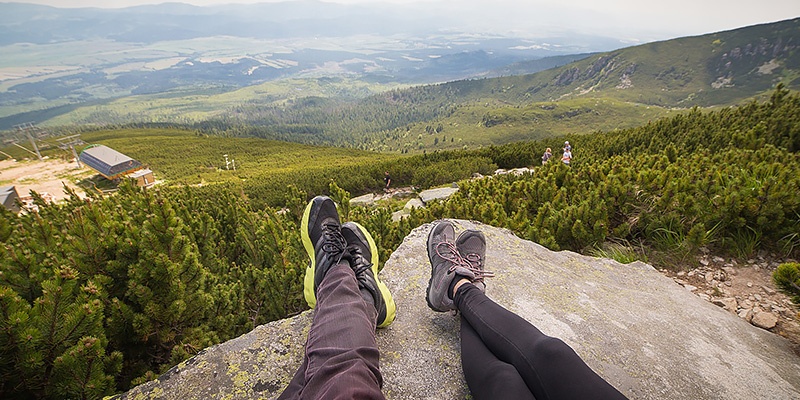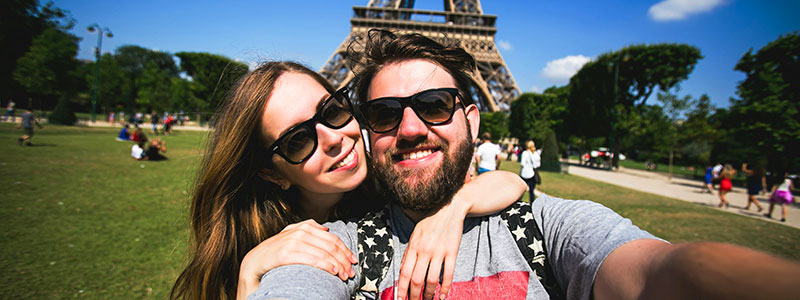In the wake of the attacks in Paris, we at Global Experiences wanted to share our thoughts and advice on how to best prepare yourself for traveling abroad. While we cannot control things like terrorism or natural disasters, we can all be mindful and aware when we travel to foreign places. Just as we should do our best to be alert of present dangers in our home cities and countries, such as the recent shootings in San Bernadino, CA, preparation is critical to safety when traveling.
Have a look at the Global Experiences’ Guide to Safe Traveling (below). We look forward to seeing you all out in the world again soon!
Pre-Departure:
Before you arrive on your internship location, make sure to spend time researching where you will be living, the political climate, as well as any government-wide warnings. It’s important to take any/all information you gather seriously, while also understanding the uncertain nature of danger in our world. The key is being informed. You don’t want to be afraid of where you’re going when the reality is you can find yourself in danger even in your hometown, but you do want to be aware of the climate you are walking into. We’ve compiled a list of steps you can take before you travel to learn as much about your location as possible.
- Review any travel alerts or warnings. For US citizens, you can view these on the US State Department website
- Enroll in a travel registration program. For US citizens, this is the State Department’s Smart Traveler Enrollment Program (STEP), which is a free service to register with the closest US embassy or consulate while you are abroad
- Educate yourself on your destination and read up on general travel tips and safety measures to take while in that city.
- Read through your travel and medical insurance plan for your program and understand what is covered and where to seek medical treatment.
- Make digital and physical copies of your passport. Bring one with you and leave one at home.
It is not often that a man can make opportunities for himself. But he can put himself in such shape that when or if the opportunities come he is ready. – Theodore Roosevelt
On-Site Orientation:
We at Global Experiences view the On-Site Orientation as a critical opportunity for you to get to know our staff on the ground, and to familiarize yourself with our Health & Safety Protocol at the onset of your program. Typically lasting two hours and covering everything associated with your experience, this is a great opportunity for you to ask questions, raise concerns, and become fully informed on what to do, who to call, and where to go in the event of an emergency. Remember, your Location Coordinator is a local who knows and understands your new home with the kind of familiarity you crave as a traveler. Not only are they there not only to provide you with tips on the best restaurants and hot spots but also support you in times of need.
- During your on-site orientation, your Location Coordinator (and 24/7 emergency contact) will review the Global Experiences health and safety protocols and emergency response plan. With over fourteen years of international programming experience, our team has created a comprehensive plan to address emergency situations.
- This presentation will also cover things like: emergency contact numbers, chain of communication and where to go in case of emergency, safety concerns in your specific city, travel & medical insurance included in program
“A nation’s culture resides in the hearts and in the soul of its people.” – Ghandi
Upon Arrival:
- Familiarize yourself with your embassy location.
- Confirm your international phone number and provide it to your Location Coordinator, friends, roommates, family back home, etc. Save all important and emergency contact numbers into your phone, and keep it charged! Keep a paper copy of emergency contacts in your wallet.
Travel is fatal to prejudice, to bigotry, and to narrow-mindedness. – Mark Twain
Throughout your Trip:
- Make others aware of your whereabouts. Inform your Location Coordinator, roommates, etc. of any travel plans, excursions, day trips, and outings. Leave a copy of flight and hotel info with your Location Coordinator or roommate before you leave for any overnight trips.
- Avoid dangerous areas, any type of protest or demonstration, and other situations that may jeopardize your safety.
- Travel with a buddy and never go out alone at night.
- If you find yourself in need of medical or legal services, contact your Location Coordinator for support.
There's no harm in hoping for the best as long as you're prepared for the worst. – Stephen King
Why it’s Important to Keep Traveling:

The best way to create a more peaceful world is through engaging with and learning about those from different cultures and backgrounds. It’s amazing the perspective one gains through traveling. Understanding the differences that divide us is the first step in overcoming the challenges those differences pose. This is not to diminish any danger within the world; tragedies strike even those who are kindest and most cultured. However, through travel and engaging with others, we come face-to-face with the innate diversity that colors our world and with the importance of overcoming politicized conflicts.
- Bad things can happen in any part of the world, on any given day. Don’t let fear prevent you from experiencing all the beauty this world has to offer.
- Traveling abroad creates cultural understanding and bridges the gap between different groups of people. It offers invaluable perspective and promotes peace among countries.
- Travel is the one thing you spend money on that makes you richer.
As your understanding of other cultures increases, your understanding of yourself and your own culture will increase exponentially. – Tom Freston





















